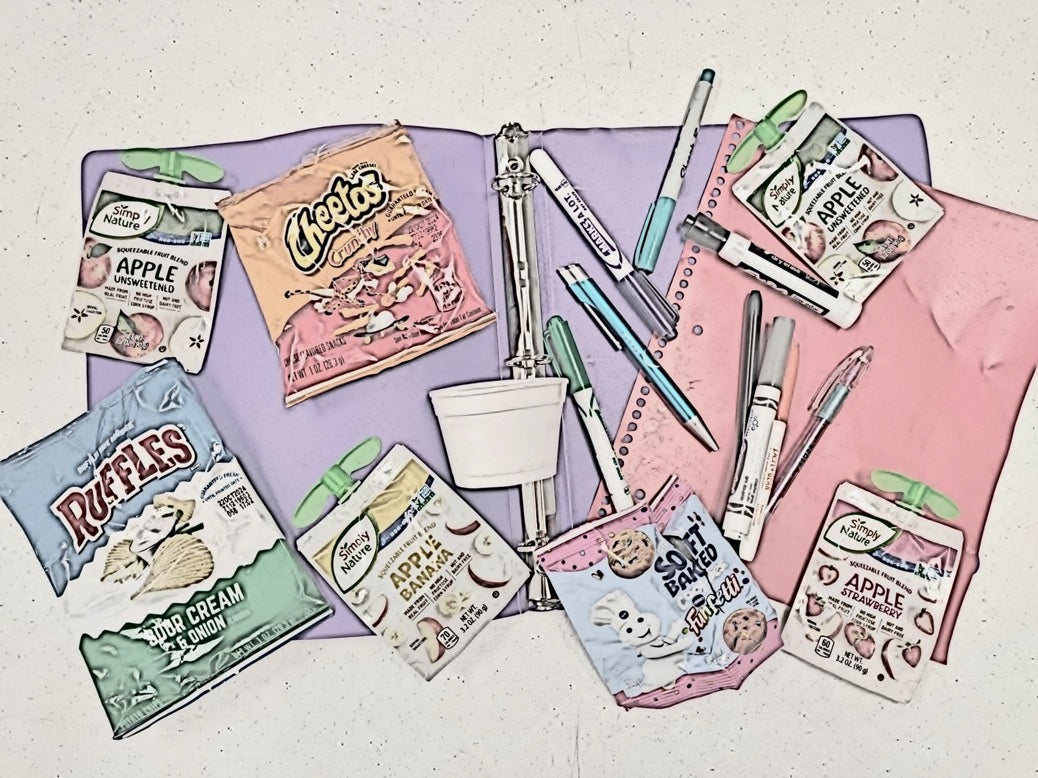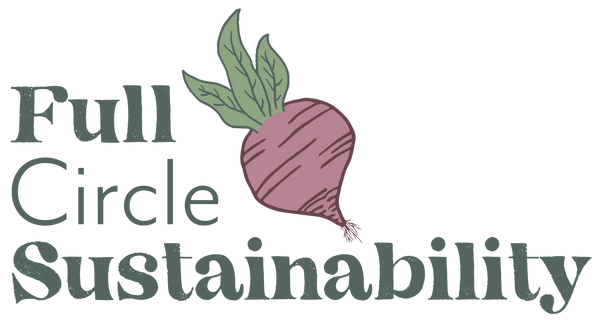
A New-School-Year Resolution for a Sustainable Revolution
Even in the 1990s—when Lunchables were king and we measured our fruit-snack consumption by the linear foot—my suburban public school was a decent environmentalist training ground. I have clear memories of learning about the hole in the ozone layer, recycling pop cans as a classroom fundraiser, and rehearsing our eco-themed musical with songs like “Don’t Throw It All Away!” and “Turn It Off!” (songs I still find myself singing to this day). The environmentalist information was there, with at least a little encouragement to actually internalize it.
I am sure much of that is still true today. There are teachers who care deeply and classrooms where no sheet of paper ends up in the trash.
But there are other ways in which little has changed or even gotten worse when it comes to sustainability.
Cafeteria waste is the issue that’s been at the top of my mind recently. Topeka Public Schools uses disposables instead of washable utensils and cafeteria trays. With 38 school buildings, 13,000 students, and 2.3 million meals served just last year, that’s a heck of a lot of plastic forks and paper boats going into the landfill. Not to mention the packaging that’s part of the meal itself (bags of baby carrots, cups of applesauce, etc.).
It’s disappointing partly because the waste is unnecessary. We could solve the problem with reusable trays, sufficient staff, and a dishwasher. It’s also disappointing because it sets a bad example. It ensures that kids grow up with “single-use,” “throw-away,” and trash as the norm.
Because alongside facts and skills, schools teach norms and habits. They shape kids’ minds and worldviews in so many small ways just through how they operate. All those curious young minds are primed to pick up ideas and ways of thinking they will remember and maintain for life. Fortunately, that presents a huge opportunity for making positive change. For developing kids into environmentalists who will grow up being good stewards of the Earth.
As we settle down from summer and shift our focus back to school, what if we made a new-school-year resolution: to look with clear eyes at how schools operate and think about how they can do better for the planet. To identify concrete actions we can take to bring about a Sustainable School Revolution.
So how do we do that? Start by looking over the list below and see what resonates with you—or what other ideas it prompts. What change would you most like to see? Which one seems easiest to take on?
In the Classroom
- If you’re a teacher, make sustainability a core value of your classroom. Weave it into everything from science to social studies.
- Teach students to consider their place within the wider world.
- Give students opportunities to feel like they can make a difference and are making a difference.
- Encourage students to choose a class project around sustainability.
- Teach kids about civic engagement and making social change.
- Bring in political and community leaders to speak to students. The school board could be a good place to start!
- Bring in candidates for political office and encourage students to ask about their commitments to sustainability.
- Bring in folks working in nonprofits and businesses to talk about the work they’re doing to help the planet.
- Bring in community volunteers to teach “sustainability skills.”
- Gardening, composting, mending, simple cooking using whole foods, reusing and repairing…
- Keep a set of reusable dishes and utensils in your classroom for parties and treat days.
- Look for these at thrift stores or ask parents or businesses for donations.
- Consider having your class raise the money with a sustainability-related fundraiser, like collecting aluminum cans to recycle.
In the School Building
- Tackle cafeteria waste
- As a student, get together with other students to tell the adults you want reusable trays and silverware. Talk to your teachers, counselors, cafeteria staff, principals, and parents. Consider going with a group of students to talk to the school board.
- As a teacher, talk to administrators. Convey how important it is that kids grow up with eco-consciousness as the norm.
- As an administrator, identify the barriers to reusables. Have the conversations and collect the data you need to address them.
- As a parent, take this issue to the PTA or school board.
- Enroll in free TerraCycle collection programs
- Baby food/applesauce squeeze packets and dental waste would be fantastic places to start! Many families go through lots of these, and you could build up a large volume in no time. Older kids can easily lead this project.
- Sign up on the TerraCycle website, or contact us and we’ll help you get started.
- Create school supply and clothing exchanges to pass down gently used items.
- Crayons, 3-ring binders, gym uniforms, school sweatshirts…
- Consider starting a school garden.
At School Functions
- Make sustainability a part of the conversation when planning any event—from small room parties to big school carnivals.
- Tackle waste in snacks, parties, and the concession stand.
- Make sure recycling receptacles are available and clearly marked.
- Provide access to clean sources of drinking water. Do not provide bottled water.
- Sell soda in aluminum cans rather than plastic bottles.
- Keep and reuse party decorations. Make kids aware you are doing this. Don’t let them see a pile of streamers in the trash!
- Acquire sets of reusable plates and utensils that classes can use for parties. Seek grant funding for this, ask for corporate donations, or hold a fundraiser.
- Brainstorm ways to make prizes and awards more sustainable.
- Five extra minutes at recess is a great, zero-waste reward! (And while the kids are emitting more carbon by running around, I think we can call that energy expenditure worthwhile!)
- Reduce waste in catered meals for teacher workdays.
- Think before you order about how food will be delivered and consumed. Choose items that generate less waste.
- Provide reusable plates and utensils or ask teachers to bring their own.
- Use bulk condiments from the cafeteria—not little packets from the restaurant.
- Go for aluminum cans over bottled beverages.
At PTA Meetings
- Talk about participating in free TerraCycle collection programs.
- Talk about cafeteria waste and make a plan for addressing it with administrators and the school board.
- Talk about reducing waste at events and parties.
At School Board and Administrative Meetings
- Talk about cafeteria waste. Identify the barriers to reusables. Have the conversations and collect the data you need to address them.
- Consider sustainability in purchasing decisions and policies.
- Talk about policies around gym uniforms, classroom treats, etc., to ensure they do not impede environmental efforts (and actually encourage them).
- Make district-wide commitments to sustainability, and share these with the community.
- Designate building sustainability coordinators or contact points, and listen to their feedback.
- Hire sustainability coordinators or consultants, and listen to their feedback.
As a Community Member
- Talk to your employer about sponsoring a TerraCycle box for your child’s school or the school in your business’s neighborhood.
- Use your skills as a grant writer to locate funding for sustainability-related projects.
- Attend school board meetings, and make sure district leaders are taking sustainability into consideration.
- Contact a school or teacher about how to share your "sustainability skills" with students.
- If you’re a prospective parent or student considering a new school, let the administration know that sustainability is important to you and will factor into your decision. Keep this in mind at any level—from preschool through enrolling for your PhD.
The ideas above are just a starting place, and there’s no one right route to making change. But we hope they will inspire you to look at your school again and see it as a changeable institution—one that is accountable to the community, staff, and kids it serves. If you have other ideas, successes, or thoughts on how to be a squeaky wheel, please drop us a line and share them with us! We’d love to hear all about it and spread your ideas in future posts!
-Justine



